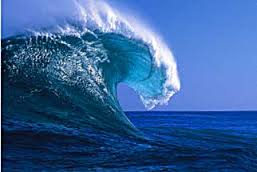Human Wave Science Fiction | Abyss & Apex (original) (raw)
Human Wave Science Fiction
“Depressing is the book ending with the protagonist dropping his sword as he dies. Human wave is one sentence more — where someone picks up the sword again and continues on, inspired.” – SJ Chase.
“ Your writing should be entertaining. If you’re writing for the awards and the literary recognition, you’re hanging out with the wrong crowd.” – Cedar Sanderson, Writing Human Wave.
“…the genre should be a way to play with possible futures, with possible outcomes, with possible ideas. The wonder of science fiction lays in the open possibility.” – Sarah Hoyt, What is Human Wave Science Fiction.
People who question the current sensibilities in writing SF & F and just want good stories are told they “want to take SF back to the pulps.” Balderdash is not an adequate response. So let’s be positive here and say what we DO mean.
What are we hoping to write? A new subgenre called “Human Wave.”
Human Wave science fiction is, at its heart, anti-establishment. That’s kind of hilarious to sixty-year-old-me, in that when I was a young person in the 60s and 70s the “establishment” that everyone was rebelling against was fairly conservative, and the revolutionaries were liberal and even socialist. Well, the rebels of the 60s and 70s are the establishment now, including most of the publishing industry. And the new crop of young writers is going to inevitably “question authority” like their parents and grandparents did.
Escapist fiction is frowned on by the establishment? Well, new technologies like POD and distribution through Amazon, B&N, etc. bypass the establishment gatekeepers and if escapism is what the readers want, writers can give it to them. Take a look at the NY Times telling us that eBooks are declining or have plateaued, and then look at the figures if you include the metrics they exclude: the Author Earnings report tells a different story. (AAP Reports Own Shrinking Market Share, Media Mistakes It for Flat US Ebook Market). Complete sales figures point to a public who want ebooks, from small presses and indies. And in the genre much of this is Human Wave.
Human Wave is not so much something new as it’s something we need to get back to. Let me give you an example of a personal favorite story I consider to be Human Wave: Samuel R. Delaney’s novella, “Empire Star.”
In “Empire Star,” a young woman meets a man named Comet Jo at various times in her life, and her life is fragmented by trips through a constantly-changing center of gravity where three stars dance and play with time. He meets her out of phase: old, young, child, middle aged, disguised as a male. All of her trips through the time-spot have one purpose: to free the enslaved Lll.
Sure, it’s a story about slavery and freedom. But it is also a story of the young woman’s personal courage and sacrifice. She’s a hero. It’s inspirational. You walk away from reading the novella with a sense of hope. More often than not, that positive feeling is lacking in much of today’s genre prose. For a recent example, I would venture to say that The Hunger Games is Human Wave. Sad how a lot of the more positive works coming out nowadays get relegated to YA. “After all,” the wisdom seems to go, “real adults and serious stories know that life is hopeless and everyone dies.” Yes, but will people pay to be constantly bombarded with that message?
More examples, and counter examples: Stross is anti-capitalist and managed to slip that into the conclusion of his Merchant Princes books. They sold well, unlike his earlier Singularity Sky where the message had all the subtlety of a bludgeon. More recently, John Ringo wrote an unabashedly pro-capitalism but highly entertaining series: Troy Rising. Maple syrup, anyone?
So, writers, it’s perfectly fine to write stories with heroes. It goes without saying that your heroes can be male, female, alien, western, or non-western. You can write with or without despair, and you are allowed to have a happy ending or at least a bittersweet one. (Because the Human Wave says, “Life’s difficult enough; why would readers want to shell out money for sadness and dystopias? Because it’s ‘good for them?’ They can only take so much.”) Go ahead and have a message in your fiction but do not overpower the story with sermonizing: it gets on reader’s nerves. People pay to be inspired, not lectured. Story and character reign supreme. And your character can die in the end if what he dies for is a worthy goal.
Write in first person, tight third, whatever POV(s) you want. Have sex scenes. Have no sex scenes. As long as they are needed for the story, that’s fine. Keep writing. As long as people are entertained, inspired, and you maintain that all important suspension of disbelief along with characters readers can identify with, you’re golden.
And if the Establishment says you’re not being a serious writer, well, you’re a rebel. Question authority. Write Human Wave.
-Wendy S. Delmater
For more information on what the Human Wave is all about, read Bradbury Speaks: Too Soon from the Cave, Too Far from the Stars. Human Wave is a call to return to those roots, not the “pulps.”
